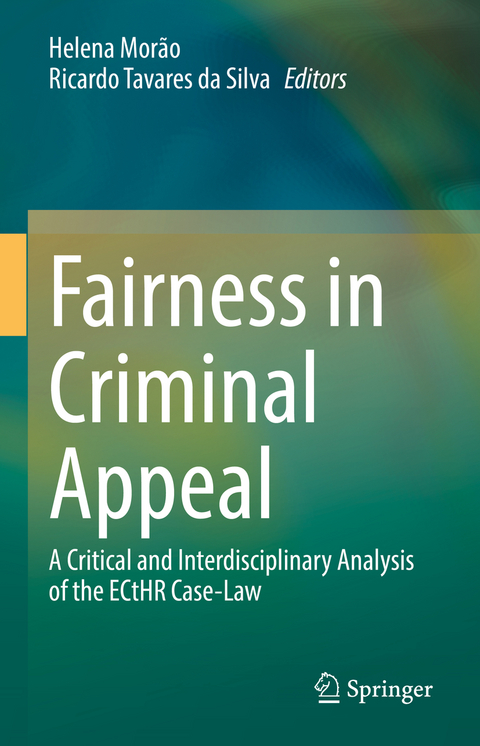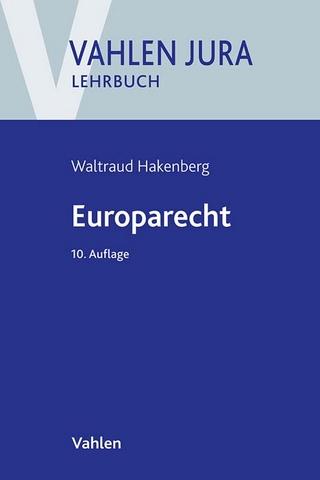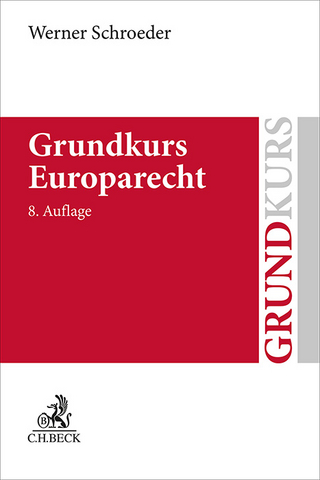
Fairness in Criminal Appeal
Springer International Publishing (Verlag)
978-3-031-13000-7 (ISBN)
On the one hand, the book critically engages this case-law with the law revisions it has recently inspired in European countries, as well as with the critiques and difficulties that it continues to raise. On the other hand, it interweaves insight from criminal procedure theory with new discoveries in the field of cognitive sciences (neuroscience of memory, philosophy of knowledge, AI), shedding an interdisciplinary light on the (in)adequacy and limits of the Strasbourg Court's jurisprudence.
Helena Morao is a Criminal Law Professor at the University of Lisbon School of Law where she was awarded her PhD. She is the Deputy Director of the Research Centre for Criminal Law and Criminal Sciences (CIDPCC), the Portuguese research centre specifically focused on criminal law, as well as Deputy Director of the journal Anatomy of Crime, Journal of Law and Crime Sciences. Her main field of research is criminal law from both normative and interdisciplinary perspectives. She is the author of several works on criminal law, including criminal appeal law, and has participated as an expert in various criminal law reforms. Ricardo Tavares da Silva is an Invited Assistant in Criminal Law at the University of Lisbon School of Law, where he was awarded his bachelor's degree. He also has a Master's degree and a PhD degree in Philosophy from the School of Arts and Humanities of the University of Lisbon. He is especially interested in Normative Theory and in the foundations of Law, but also in related issues in Philosophy of Action and Philosophy of Mind, Metaphysics and Epistemology, Cognitive Science and Neuroscience. He is a member and executive coordinator of the Research Centre for Criminal Law and Criminal Sciences (CIDPCC).
Part I: Introduction.- The ECtHR case-law on immediacy in criminal appeal.- Part II: Criminal appeal immediacy models and the ECtHR case-law.- The evidence renewal model in Italy.- The retrial model in Spain.- The audio recordings model in Portugal: The appeal court's perspective.- The audio recordings model in Portugal: The defendant's and the victim's perspectives.- Part III: Immediacy in criminal procedure theory and cognitive sciences.- Immediacy at the first instance trial.- Audio-visual recordings as evidence in criminal procedure.- Neuroscience of memory and philosophy of knowledge challenges to immediacy.- AI assistance in the courtroom and immediacy.- Part IV: Concluding thoughts.- On the legitimacy of the ECtHR's criminal appeal immediacy requirement.
| Erscheinungsdatum | 15.02.2023 |
|---|---|
| Zusatzinfo | XIII, 213 p. |
| Verlagsort | Cham |
| Sprache | englisch |
| Maße | 155 x 235 mm |
| Gewicht | 512 g |
| Themenwelt | Recht / Steuern ► EU / Internationales Recht |
| Recht / Steuern ► Strafrecht | |
| Sozialwissenschaften ► Politik / Verwaltung | |
| Schlagworte | AI Assistance in the Courtroom • Appeal Court • Case Law • Criminal appeal • European Convention on Human Rights • European Court of Human Rights • fair trial • Immediacy principle • Law Reform • Neuroscience of Memory in the Courtroom • Recorded Evidence • Right to an Appeal Hearing • Right to Appeal • Witnesses' Testimonies • Witnesses’ Testimonies |
| ISBN-10 | 3-031-13000-6 / 3031130006 |
| ISBN-13 | 978-3-031-13000-7 / 9783031130007 |
| Zustand | Neuware |
| Haben Sie eine Frage zum Produkt? |
aus dem Bereich


